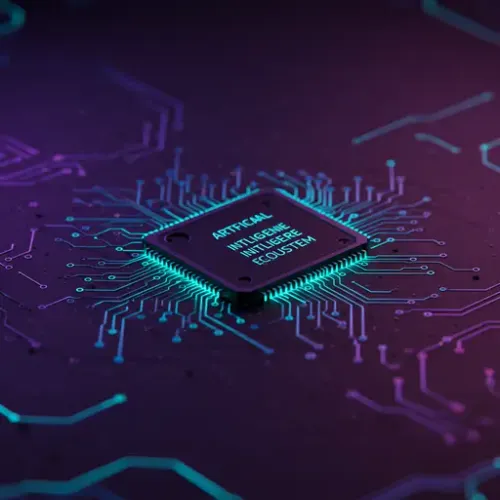The Media and I: Artificial Intelligence

The AI Report
Daily AI, ML, LLM and agents news
Navigating the AI Frontier: Balancing Innovation with Human Ingenuity
Artificial intelligence continues its rapid integration into nearly every facet of our lives, presenting a complex landscape of exhilarating possibilities and considerable challenges. In a recent discussion, we explored this dynamic, touching upon the fundamental balance required as we increasingly rely on AI tools.
The conversation highlighted the critical need to preserve and cultivate core human skills—thinking, reasoning, and creativity—even as AI offers unprecedented capabilities to augment our work and automate tasks. While AI can perform complex computations, analyze vast datasets, and generate content at speed, it is essential that we, as individuals and a society, do not allow these powerful tools to supplant the very intellectual foundations upon which innovation and critical understanding are built.
Consider the everyday interactions that AI now mediates. While AI-driven customer service promises efficiency, it often delivers frustration. The experience can be depersonalized, lacking the empathy, nuance, and genuine problem-solving ability that a human representative brings. The inability to quickly connect with a person when faced with a complex issue or simple misunderstanding underscores a key limitation of current AI applications in this domain. It serves as a tangible reminder that not all interactions are best handled by algorithms, and the human touch, particularly in service-oriented roles, holds significant, irreplaceable value.
The realm of education also grapples with the impact of AI. As tools capable of generating sophisticated essays become readily available, questions arise about the integrity of learning and assessment. Some educational institutions, particularly at the elite level, are reportedly revisiting traditional methods like requiring handwritten essays, reminiscent of the old Blue Books. This seemingly backward step is, in fact, a proactive measure to ensure students are still developing fundamental writing skills, formulating original thoughts, structuring arguments logically, and processing information deeply—skills that are honed through the manual, deliberate process of writing and thinking, rather than merely prompting a machine.
This tension between leveraging AI's power and preserving human capability is not unique to customer service or education. It extends across industries, forcing us to confront how we define work, learning, and value in an increasingly automated world. The goal is not to reject AI, but to integrate it thoughtfully, ensuring it serves as a co-pilot or assistant rather than a sole operator.
However, the potential benefits of AI are undeniable and, in some areas, truly transformative. As I've noted in previous discussions, particularly regarding its application in medicine, AI holds immense promise. Machine learning algorithms can analyze medical images with incredible accuracy, assist in diagnosing diseases earlier, predict patient outcomes, and help personalize treatment plans. By processing vast amounts of medical literature and patient data, AI can provide clinicians with insights that would be impossible to obtain manually, potentially leading to more accurate diagnoses and improved quality of care. Furthermore, AI has the potential to increase the accessibility of medical expertise, particularly in underserved areas, by providing support for healthcare professionals or even offering preliminary diagnostic guidance where specialists are scarce.
The application of AI in medical research is also accelerating the discovery of new drugs and therapies by identifying patterns in biological data that human researchers might miss. This potential to enhance both the accessibility and quality of healthcare demonstrates a powerful, beneficial application of AI when directed towards complex, data-intensive challenges where its analytical strengths can truly shine.
The key takeaway from these diverse examples is the necessity of finding a critical balance. AI is a tool—a powerful, complex, and rapidly evolving tool. Like any tool, its impact depends on how it is designed, implemented, and used. We must be deliberate in ensuring that AI enhances human capabilities and addresses complex problems, such as improving healthcare accessibility and quality, without eroding the foundational skills and human connections that are vital to our society and individual development.
For individuals, this means focusing on developing skills that complement, rather than compete directly with, AI—critical thinking, creativity, emotional intelligence, complex problem-solving, and ethical reasoning. For institutions, it requires careful consideration of where and how AI is deployed, with an emphasis on maintaining quality, integrity, and human oversight. The future is not about AI replacing humans, but about intelligent collaboration, where AI's analytical power is guided and enriched by human judgment, creativity, and empathy. Navigating this future successfully demands a conscious effort to understand AI's strengths and limitations and to prioritize the preservation of essential human capacities.

The AI Report
Author bio: Daily AI, ML, LLM and agents news
